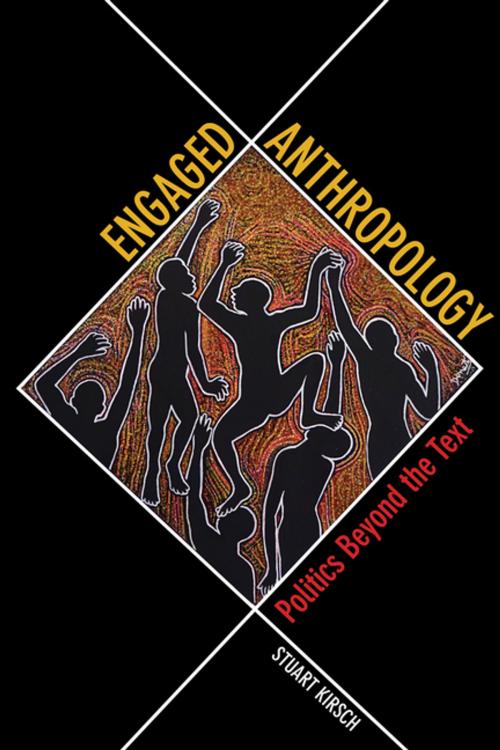Engaged Anthropology
Politics beyond the Text
Nonfiction, Social & Cultural Studies, Social Science, Anthropology| Author: | Stuart Kirsch | ISBN: | 9780520970090 |
| Publisher: | University of California Press | Publication: | March 23, 2018 |
| Imprint: | University of California Press | Language: | English |
| Author: | Stuart Kirsch |
| ISBN: | 9780520970090 |
| Publisher: | University of California Press |
| Publication: | March 23, 2018 |
| Imprint: | University of California Press |
| Language: | English |
Does anthropology have more to offer than just its texts? In this timely and remarkable book, Stuart Kirsch shows how anthropology can—and why it should—become more engaged with the problems of the world. Engaged Anthropology draws on the author’s experiences working with indigenous peoples fighting for their environment, land rights, and political sovereignty. Including both short interventions and collaborations spanning decades, it recounts interactions with lawyers and courts, nongovernmental organizations, scientific experts, and transnational corporations. This unflinchingly honest account addresses the unexamined “backstage” of engaged anthropology. Coming at a time when some question the viability of the discipline, the message of this powerful and original work is especially welcome, as it not only promotes a new way of doing anthropology, but also compellingly articulates a new rationale for why anthropology matters.
Does anthropology have more to offer than just its texts? In this timely and remarkable book, Stuart Kirsch shows how anthropology can—and why it should—become more engaged with the problems of the world. Engaged Anthropology draws on the author’s experiences working with indigenous peoples fighting for their environment, land rights, and political sovereignty. Including both short interventions and collaborations spanning decades, it recounts interactions with lawyers and courts, nongovernmental organizations, scientific experts, and transnational corporations. This unflinchingly honest account addresses the unexamined “backstage” of engaged anthropology. Coming at a time when some question the viability of the discipline, the message of this powerful and original work is especially welcome, as it not only promotes a new way of doing anthropology, but also compellingly articulates a new rationale for why anthropology matters.















